Mango benefits, Mango juice along with its Ayurvedic and health benefits
What is Mango? Mango, revered as the king of fruits, not only tantalizes the taste buds but also offers a …
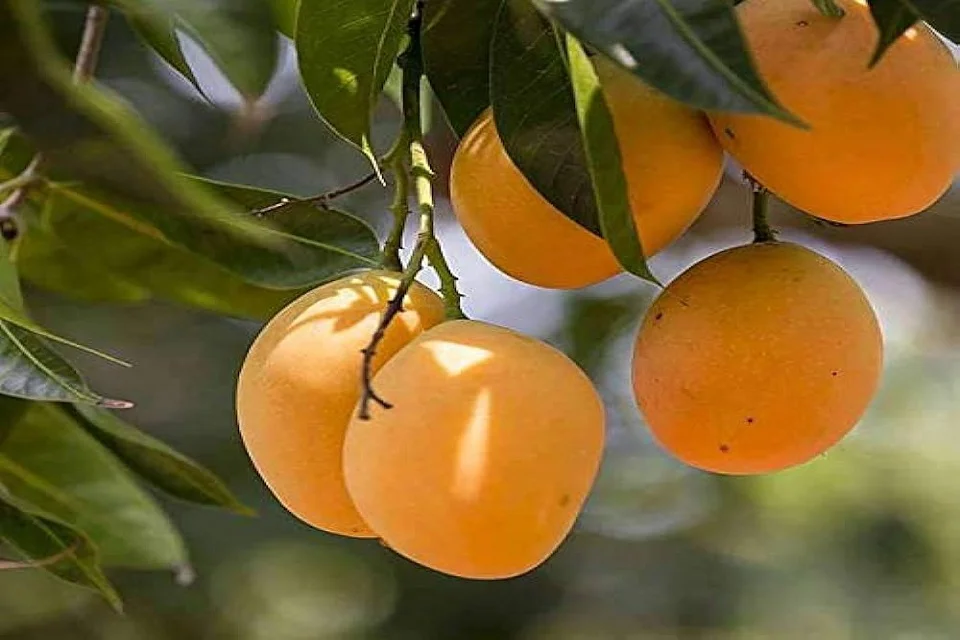
What is Mango?
Mango, revered as the king of fruits, not only tantalizes the taste buds but also offers a plethora of health benefits deeply rooted in Ayurveda. This tropical delight, scientifically known as Mangifera indica , has been cherished for centuries in Ayurvedic medicine for its remarkable therapeutic properties. From promoting digestion to boosting immunity, the mango fruit is a treasure trove of nutrients, antioxidants, and bioactive compounds.
Mango benefits in Ayurveda
सन्तर्पणो यः सकलेन्द्रियाणां बलप्रदो वृष्यतमश्च हृद्यः ।
स्त्रीषु प्रहर्षं प्रचुरं ददाति फलाधिराजः सहकार एव ।।
सु.नि.१७.२३
In Ayurveda there is specific mention of fruits as health benefits, most Acharya mentioned specific Phala varga to mention properties of various fruits. Mango which is also known as Amra in Ayurveda is good for all indriya and it is called king of all fruits. Because it has lots of benefits like it improves aphrodisiac quality. In the Ayurvedic text, innumerable mango benefits are mentioned like unriped mango benefits, riped mango benefits, and mango tree uses.
What is the Morphology of Mangifera indica?

Latin name– Mangifera indicaL.
Mangifera indica, commonly known as mango, is a tropical evergreen tree belonging to the Anacardiaceae family. Its morphology is characterized by a tall, erect trunk with a dense crown of glossy, dark green leaves. The leaves are oblong or elliptic, arranged alternately, and have prominent veins. Mango tree produces small, fragrant flowers arranged in panicles, which later develop into fleshy, ovoid, or oblong fruits with a single large seed. The fruit’s skin varies in color from green to yellow, red, or orange, depending on the cultivar. With its lush foliage and vibrant fruits, Mangifera indica embodies the exotic allure of tropical landscapes.
Type of Mango
Raja Nighantu mentioned four varieties of Amra(Mango),
- Kosamra
- Rajamra
- Maharajamra
- Badaramra
In Shodhal Nighntu three varieties of Amra are mentioned,
- Amra
- Rajamra
- Kosamra
Synonyms
Keereshta, Madhavadruma, Bhringabheeshta, Sahakara, Madodbhava, Makanda, Rasala, Atisurabha, Chaitravriksha, Amlaphhala, Madhuphala, Vanapushpotsava, Vasantadoota, Kamashara, Kokilbandhu, Suphala,
Classical Categorization
- Charak:Hridya, Chardinigrahana, Purish sangrahaniya, Mutra sangrahaniya
- Sushruta:Nyagrodhadi gana
- Vaghbhatta: Nyagrodhadi gana
- Dha. Ni., Ra.Ni., Bha.Ni., So,Ni.: Amradi Varga
Other/Regional Language Names
- English:Mango
- Gujarati:Keri
- Hindi:Aam
- Kannada:Maavinahannu
- Malayalam:Amram, Manga, Mava, Mao
- Marathi:Aamba, Amba
- Tamil:Mambalam, Maankai
- Telugu:Amramu, Cutamu, Maavidi
- Urdu:Amba, Abanj
Mango benefits with nutrients
Vitamins and Minerals: Mangoes are rich in vitamins and minerals. They are an excellent source of vitamin C, which supports immune function and acts as an antioxidant. Mangoes also provide vitamin A, which is important for vision health, as well as vitamin E, vitamin K, and a range of B vitamins such as thiamine (B1), riboflavin (B2), niacin (B3), folate (B9), and pyridoxine (B6). In terms of minerals, mangoes contain potassium, magnesium, and traces of other minerals like calcium, phosphorus, and zinc.
Antioxidants: Mangoes are loaded with antioxidants, including various phytochemicals such as polyphenols, flavonoids, and carotenoids like beta-carotene and lutein. These antioxidants help protect the body against free radicals, reduce oxidative stress, and may have anti-inflammatory effects.
Dietary Fiber: Mangoes are a good source of dietary fiber, including both soluble and insoluble fiber. Fiber aids in digestion, promotes bowel regularity, and helps maintain healthy cholesterol levels. It can also contribute to a feeling of fullness, which can be beneficial for weight management.
Eye Health: The vitamin A and carotenoids found in mangoes are important for maintaining good eye health. Vitamin A is essential for proper vision, while carotenoids like beta-carotene and lutein have been associated with a reduced risk of age-related macular degeneration and cataracts.
Skin Health: Mangoes contain nutrients that can contribute to healthy skin. Vitamin C promotes collagen production, which helps maintain skin elasticity and reduce signs of aging. The antioxidants in mangoes also help protect the skin from damage caused by free radicals.
Digestive Health: The fiber content in mangoes supports healthy digestion and can help prevent constipation. Additionally, mangoes contain enzymes like amylase and protease, which aid in the breakdown of carbohydrates and proteins, respectively.
Hydration: Mangoes have a high water content, making them hydrating and refreshing, particularly during hot weather or physical activity.
Rasa Panchak
- Rasa:Madhur, Amla
- Guna:Guru, Snigdha, Shita
- Virya:Shita
- Vipaka:Madhura
- Karma:Vrishya, Hridya, Balya, Varnya, Ruchya
What are the mango benefits?
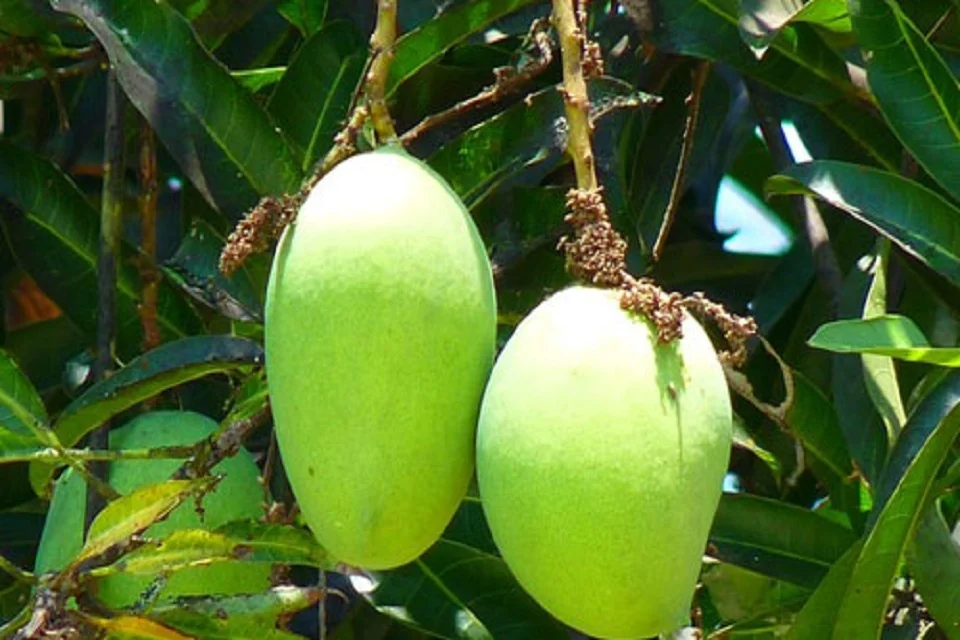
Unripe small mango benefits
आम्र बालं कषायाम्लं रुच्यं मारुतपित्तकृत् ।
तरुणं तु तदत्यम्लं रूक्षं दोषत्रयास्रकृत् ।।भा. प्र.
बालं कषायं कट्वम्लं रूक्षं वातास्रपित्तकृत् । ध. नि.
Katu(Pungent), Kashaya(Pungent), Amla(Sour), Ruksha(Increases Dryness in body), Ruchya(Imrpoves taste), Vata-Rakta krita(Vitiates Vata and Blood), Pittakrita(Increases Pitta dosha)
Unripe mango without bark benefits
आम्रमामं त्वचा हीनम आतपातिविशोषितम् ।
अम्लं स्वादु कषायं स्याद्भेदनं कफवातजित् ।। भा. प्र.
Unripe mango is good in summer. It help to prevent from hotness in summer. Acharya said atapavisoshi means it absorbs sun rays in a way that hotness not affect to body.It is अम्ल (Sour), स्वादु(Sweet), कषाय(Astringent), कफवात जित(It reduces Kapha and Vata dosha)
Unripe mango with bark
सम्पूर्णमाममम्लं च रक्तपित्तकफप्रदम् |
हृद्यं वर्णकरं रुच्यं रक्तमांसबलप्रदम् । ध. नि.
रक्तपित्तकफप्रद(It vitiates rakta pitta kapha dosha), हृद्यं(Good for heart), वर्णकरं(It improves complexion), रुच्यं(Tasty), रक्तमांसबलप्रद(It improves blood tissue, muscle tissue and increase strength)
Ripe mango benefits
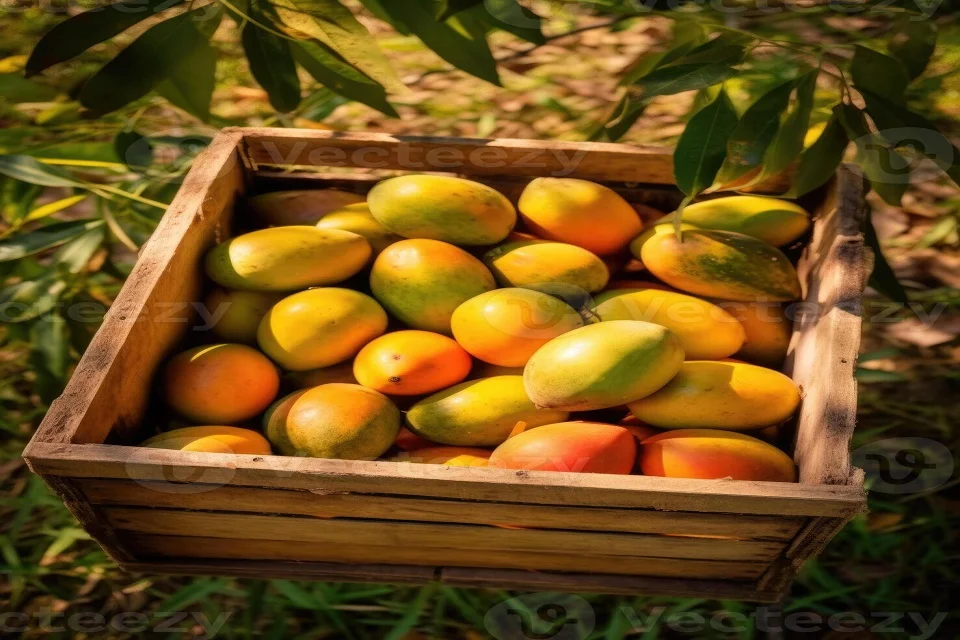
पक्वं तु मधुरं वृष्यं स्निग्धं बलसुखप्रदम् ।
गुरु वातहरं हृद्यं वर्ण्य शीतमपित्तलम् ।
कषायानुरसं वह्निश्लेष्मशुक्रविवर्धनम् ।। भा. प्र.
वह्निविवर्धन(Improves digestive strength), श्लेष्मविवर्धन(Increase kaph dosh), शुक्रविवर्धन(Increase sperm quality)
Mango ripe on tree benefits
तदेव वृक्षसम्पक्वं गुरु वातहरं परम्।
मधुराम्लरसं किञ्चिद्भवेत्पित्तप्रकोपणम् ।।
गुरु(Heavy), वातहरं परम्(It reduces vat dosh), मधुर(Sweet), अम्लरस(Sour), किञ्चित्तपित्तप्रकोपणम्(Slight increase pitta dosh)
Artificial ripen mango benefits
आम्र कृत्रिमपक्वञ्च तद्भवेत्पित्तनाशनम् ।
रसस्याम्लस्य हीनस्तु माधुर्याच्च विशेषतः ।
चोषितं तत्परं रुच्यं बल्यं वीर्यकरं लघु।
शीतलं शीघ्रपाकि स्याद्वातपित्तहरं सरम् ।। भा प्र
पित्तनाशन(Balances and reduce excessive pitta dosha), अम्ल हीन(Slight sour), माधुर्य विशेषत(More sweet), रुच्यं(Improve taste), बल्यं(Increase strength), वीर्यकरं(Improve sperm quality and aphrodisiac), लघु(Light in nature), शीतलं(Coolant in nature), शीघ्रपाकि(Fast digest), वातपित्तहरं(It reduces excessive vata and pitta dosh), सर(Laxative)
Amra ras(Mango juice) benefits
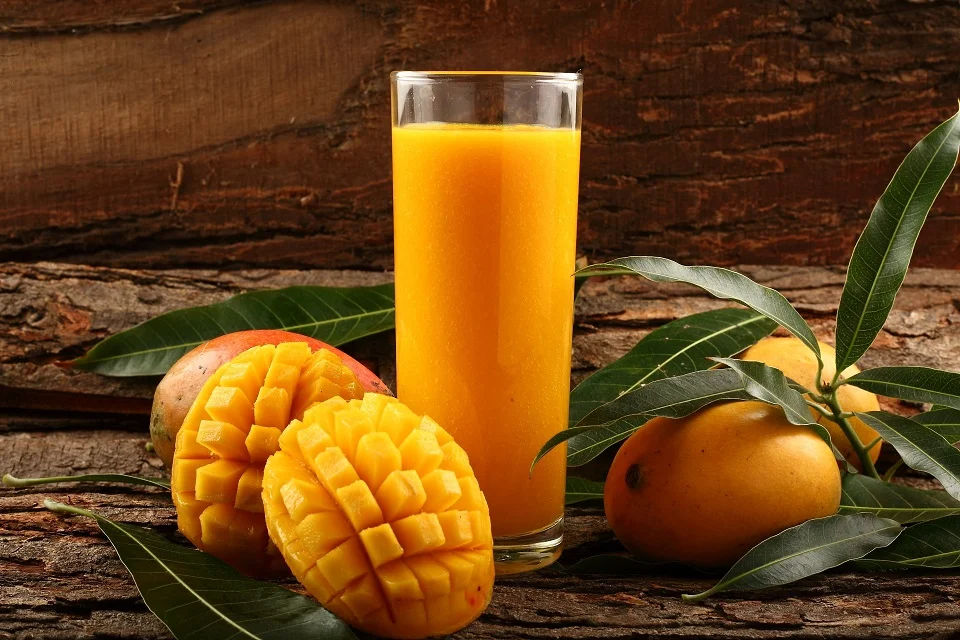
तद्रसो गालितो बल्यो गुरुर्वातहरः सरः ।
अहृद्यस्तर्पणोऽतीव बृंहणः कफवर्धनः ।। भा. प्र.
बल्य(Improves strength), गुरु(Heavy),र्वातहर(It reduces excessive vat dosha), अहृद्य(Not good for heart in excess quantity),तर्पण, बृंहण, कफवर्धन(Increase kaph dosha)
Amra khand(mango candy) benefits
तस्य खण्डं गुरु परं रोचनं चिरपाकि च ।
मधुरं बृंहणं बल्यं शीतलं वातनाशनम् । भा. प्र.
गुरु (Heavy), परं रोचन (Very tasty, Improves anorexia), चिरपाकि(Take a long time to digest), मधुर(Sweet), बृंहण-बल्य(Improve strength), शीतल(Coolant), वातनाशन(Reduces excessive vat dosha)
Mango milk benefits
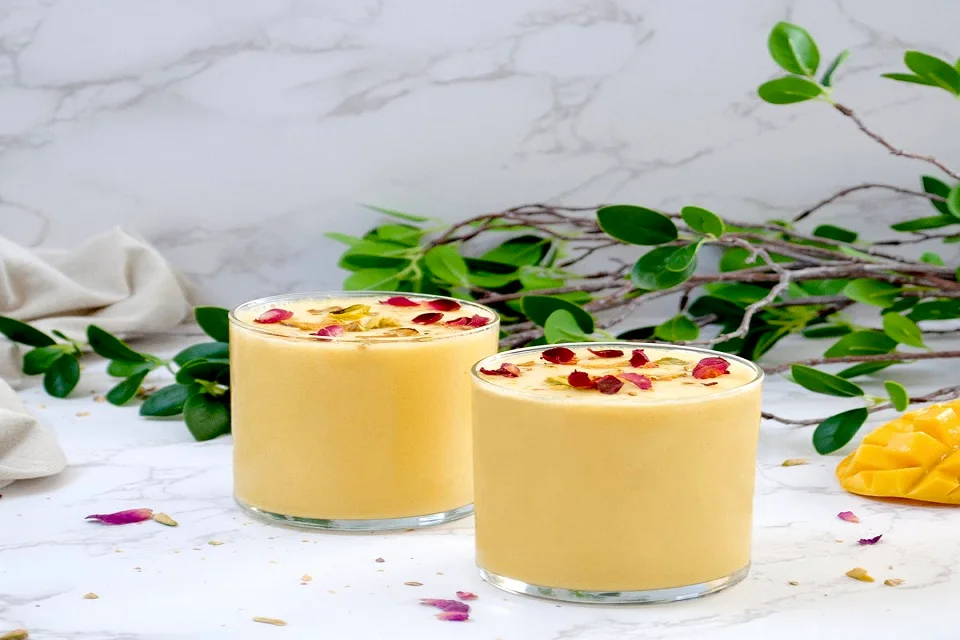
वातपित्तहरं रुच्यं बृंहणं बलवर्धनम् ।
वृष्यं वर्णकरं स्वादु दुग्धाम्रम् गुरु शीतलम् ।।भाप्र
Vata Pittahara(Decreases Excessive Vata-Pitta Dosha), Ruchya(improves taste), Brihana- Balavardhanam(increase strength), Vrishya(aphrodisiac), Vrnyakara(improve complexion), Svadu(sweet), Guru(heavy), Shita(coolant)
Conclusion
In conclusion, mango stands as a testament to the profound wisdom of Ayurveda, offering a symphony of flavors and health benefits. Through its rich nutritional profile and therapeutic properties, this beloved fruit has secured its place not only in culinary traditions but also in holistic wellness practices. From supporting digestion and boosting immunity to promoting heart health and skin radiance, mango embodies the holistic approach of Ayurveda towards achieving balance and vitality.





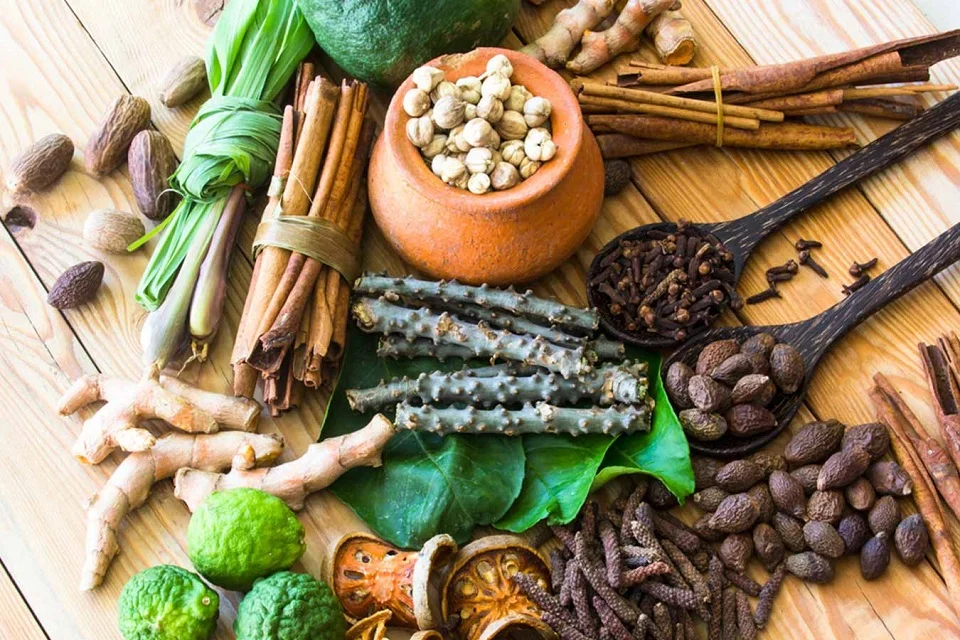
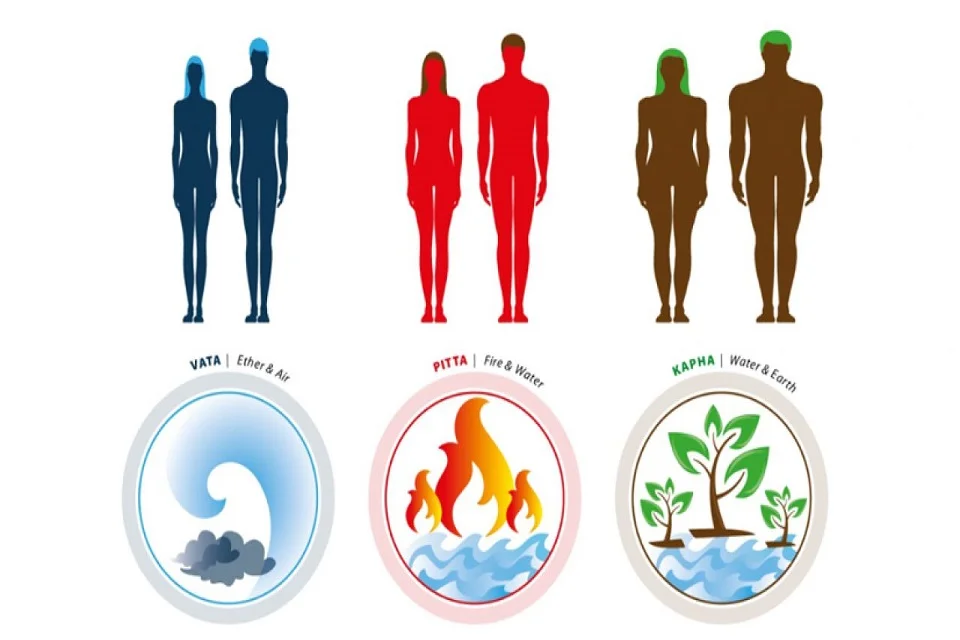

Got Something To Say